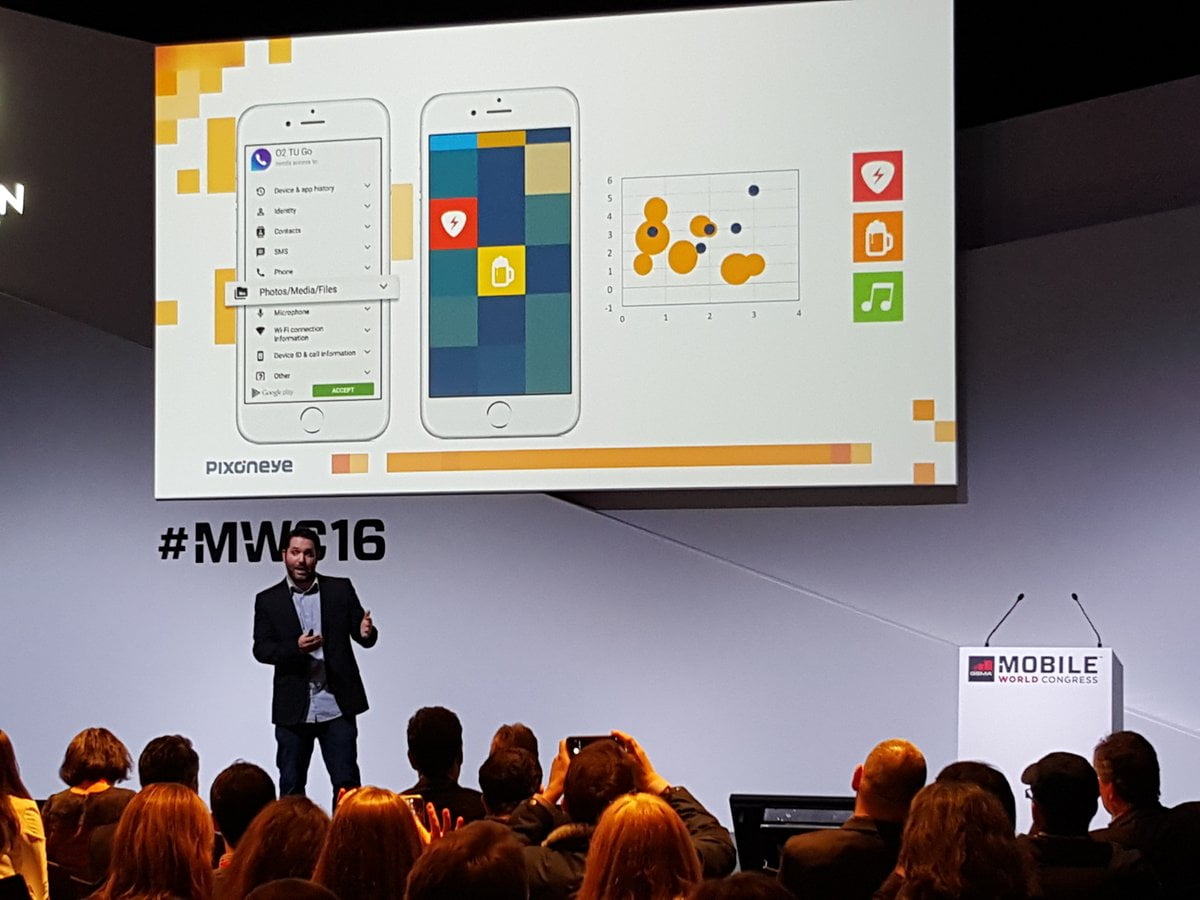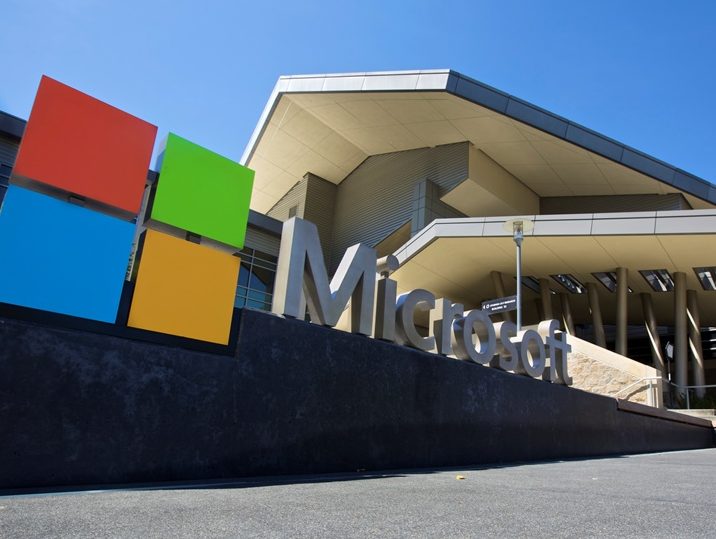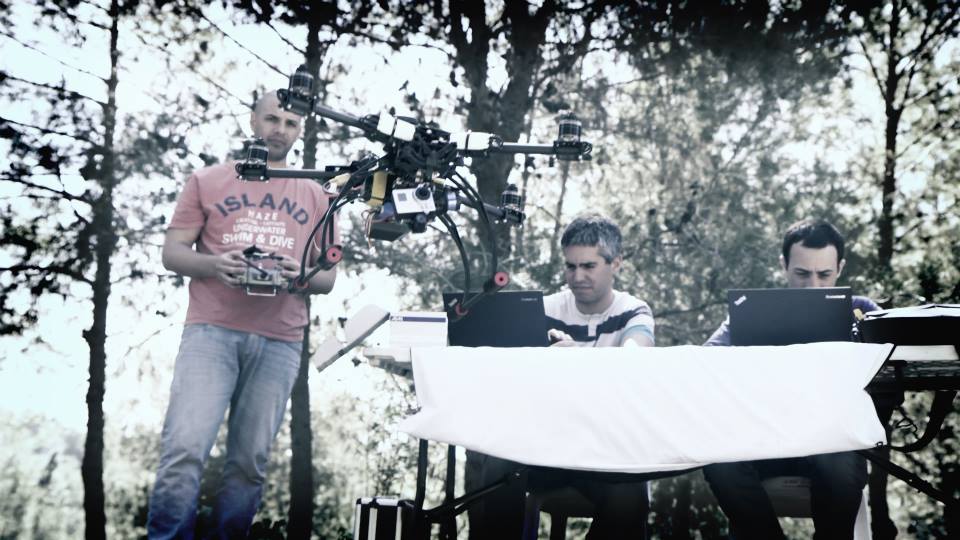“There’s no doubt Israel is going to change the world with the human capital that’s here,” Microsoft CEO Satya Nadella said at the company’s annual Think Next 2016 conference in Tel Aviv today. Microsoft founder Bill Gates sent a video of himself congratulating the company’s Israeli research and development center for its 25th anniversary, highlighting its great contribution to the field of computer science.
Earlier today, Nadella met with Israeli Prime Minister Benjamin Netanyahu to reaffirm Microsoft’s commitment to Israel in the form of assistance programs for startups and implementation of advanced technologies in all sectors of the economy. “At Microsoft, we seek to empower every Israeli citizen, every business, every startup, all key government organizations to achieve more with our tools,” he said following the meeting.
“Our success is not dependent on our products”
At the core of Microsoft’s $400 billion business is software — the kind that doesn’t need to be matched to specific hardware. Yet, the largest software company in the world looks like anything but its former self: Pay-as-you-go cloud services; a walk-in white shiny store on Fifth Avenue and yes, hardware.
SEE ALSO: The Coolest Israeli Startups Presenting This Week At The GSMA Mobile World Congress
Despite the feeling of deja vu that Microsoft is again copying Apple, these changes seem to reflect a much deeper cultural shift in Microsoft, one that Nadella has not been shy about sharing. “Our success is not dependent on our products. It’s more dependent on the success that our customers, our partners, have with our products,” said the Hyderabad, India-born CEO, who spoke today before an audience of thousands.
A mobile-first, cloud-first world
Imagining the not-too-distant future, Nadella explained that “five to 10 years from now, we will have more computing: Things that we wear on our eyes, on our ears, on our wrists, in our pockets, small screens, large screens.” But the important question is “how to access your experiences across all this computing, and that’s of course something we think the cloud orchestrates and that’s why we think both revolutions [mobile and cloud] happen together.”
In shaping up the 40-year old company for a mobile-first, cloud-first world, Nadella has been keen on pursuing greater partnerships with developers (many of whom have left Microsoft’s operating system in favor of the more widely used iOS and Android) and startups, which the tech giant has been scooping up by the dozen (Microsoft completed 19 acquisitions in 2015 alone). Yet, Nadella stressed that the company wasn’t pushing new products for the sake of new products, but rather a more connected information platform. “It’s not how we build five more tools, but how can we create a new information fabric that helps allocate for each one of us the only scarce resource that we have, which is our time.”
To that tune, some 30 Israeli startups demoed their products at the Port of Tel Aviv, where entrepreneurs, investors and partners in Microsoft Ventures and the VC’s accelerator also gathered. Following the company’s five Israeli acquisitions in the last two years, the focus for this year’s event has not been software, strictly speaking, but rather big-data analytics, cyber-security and hardware, just not the kind you already own.
Pixelated data
A recent alumnus from the seventh batch of Microsoft Ventures’ Tel Aviv accelerator, Pixoneye has developed computer-vision technology that looks into consumers’ personal photo galleries in order to tailor marketing material. Your data privacy alarm bell is going off (as it should!), but the company has developed a software development kit (SDK) that “teaches the user’s devices how to analyze its own photos, meaning that at no time do we see the photos, touch the photos, or even move them to a temporary folder,” Pixoneye CEO Ofri Ben Porat explained at the accelerator’s demo day earlier this month.

Pixoneye CEO Ofri Ben Porat presenting at the Mobile World Congress in Barcelona earlier this week. Courtesy
“The phone then condenses those images into an abstract histogram, and that histogram is extracted onto our servers, where it is analyzed in real-time, and the results are sent directly to our clients,” Nestle and Unilever, to name a few. In other words, Pixoneye understands what’s in the photos (i.e. a dog, a child, a rock band), and not who specifically is in them (Rufus, your kid brother, a Nirvana poster).
The year-old company is helping retailers to create accurate but also predictive digital profiles of their customers, without breaching privacy. In a beta test with Tesco, one of the UK’s largest food retailers, Pixoneye predicted with 94 percent accuracy the items in customers’ online shopping baskets, based solely on its photo analysis. To add to its achievements, the company won “Best Digital Media Startup” in the 4YFN competition at the GSMA Mobile World Congress in Barcelona earlier this week.
Sign up for our free weekly newsletter
SubscribeCyber-security as a service
After Microsoft acquired three Israeli cyber-security companies in the last two years, its investment arm Microsoft Ventures is keeping up the pace, investing in seven Israeli cyber-security companies, including the recently funded Siemplify and LightCyber (the venture arm has invested in a total of 22 cyber-security companies).
In addition to the security of digital assets, like your bank account details and medical records, Microsoft Ventures is also investing in the security of physical assets, such as power stations and transport lines with Beersheba-based SCADAfence.
SEE ALSO: Keeping The Lights On: Israeli Startups Protect Against Dire Cyber Attacks
A portfolio company of Israeli venture capital firm Jerusalem Venture Partners, an active investor in cyber-security, SCADAfence is protecting critical infrastructure from digital attacks — something that wasn’t considered possible until an Iranian nuclear facility was disabled by the Stuxnet malware worm in 2010.

From left: JVP Partner Yoav Tzruya, SCADAfence CEO Yoni Shohet, Knesset Member Erel Margalit, US Ambassador to Israel Dan Shapiro. Courtesy of JVP
To commercialize its solution, the year-old company announced yesterday that it is partnering with the doyen of Israeli cyber-security Check Point to secure manufacturing networks, those that are remotely controlled with SCADA operational technology (supervisory control and data acquisition, in case that wasn’t obvious).
Personal drones
Taking computer vision “higher,” Percepto is building an open-source development platform for drones that will enable them to, among other things, avoid obstacles. The company, which first raised an initial $100,000 through an Indiegogo crowd-funding campaign, now boasts former CEO of Time Warner Richard Parsons, Dallas Mavericks owner Mark Cuban, and famed Chinese entrepreneur Xu Xiaoping as its investors.
SEE ALSO: ‘Flytrex Sky’ Personal Delivery Drone Will Ship Goods To Your Location Within Minutes
Yet, more than big kids’ play sets, Percepto’s hardware/software package is filling the gap in commercial drone development: Most drones could do a 360-degree rotation around you as you ride a skateboard, if you could program it to do so. But that programming costs time and money, in addition to the $1,000 average purchase price of a drone itself. According to Percepto, its SDK saves developers 70 percent of the time it takes to create a new drone application. Given that the founders are avid snowboarders, chances are they will have amble time to beta-test.
Software beyond the PC
Other presenting startups at Think Next today included MUV Interactive, whose small wearable device turns any surface into an interactive touchscreen, and Lexifone, whose call-in service offers real-time translation of conversations. The array of startups at the event and Microsoft’s eagerness to work with them would suggest that the tech giant is closer to the next generation of entrepreneurs than its founding date would suggest.

Yoram Yaacovi, General Manager of Microsoft Israel’s R&D Center, speaking at Think Next 2016. Courtesy
Photos: Johannes Marliem; Pixoneye; SCADAfence/JVP; Percepto
Related posts

Editors’ & Readers’ Choice: 10 Favorite NoCamels Articles

Forward Facing: What Does The Future Hold For Israeli High-Tech?

Impact Innovation: Israeli Startups That Could Shape Our Future






Facebook comments